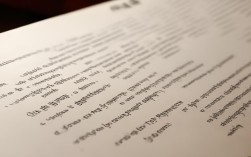下面我将从高分原则、动词分类、实战技巧和常见误区四个方面,为你详细解析如何在雅思作文中用好动词。

高分动词使用的四大原则
-
精准性
- 低分做法: 用一个模糊的动词贯穿全文,
show,make,get,do。 - 高分做法: 根据语境选择最贴切、最具体的动词,表达精确的含义。
- 示例:
- 低分:
This data shows that the population is increasing. - 高分:
This data **indicates** / **reveals** / **demonstrates** that the population is increasing. - 分析:
indicate(暗示),reveal(揭示),demonstrate(证明) 比show更具学术性和精确性。
- 低分:
- 低分做法: 用一个模糊的动词贯穿全文,
-
多样性
- 低分做法: 反复使用同一个动词,造成语言单调。
- 高分做法: 使用同义词或不同表达方式来替换,避免重复。
- 示例:
- 低分:
Many people think technology is good. They also think it can solve many problems. I think it is very useful. - 高分:
A significant proportion of the population **believes** that technology is beneficial. They also **argue** that it can resolve numerous issues. From my perspective, I **contend** that it is remarkably useful. - 分析: 用
believes,argue,contend替换了重复的think。
- 低分:
-
生动性与学术性
- 低分做法: 使用过于口语化或简单的动词。
- 高分做法: 使用更具表现力或更正式的学术动词。
- 示例:
- 低分:
The government needs to do something to help the poor. - 高分:
The government is **obliged to implement** concrete measures to **alleviate** poverty. - 分析:
implement(实施),alleviate(减轻) 比do和help更正式、更有力。
- 低分:
-
语法正确性
- 低分做法: 动词时态、语态、搭配错误。
- 高分做法: 确保动词在句子中的用法完全正确。
- 示例:
- 低分:
The pollution is caused by that factories dump waste. - 高分:
The pollution is **caused by** factories **dumping** waste.(动名词作宾语) 或Pollution **stems from** the fact that factories dump waste.( stems from 代替 is caused by)
- 低分:
动词分类与词库积累
根据在文章中的不同功能,我们可以将动词分为以下几类,并为你提供丰富的“弹药库”。
表达观点和立场
这类动词用于引出你的论点、同意或反对某个观点。
- 中性/客观陈述
argue(主张,认为)claim(声称)state(陈述,说明)suggest(建议,暗示)indicate(表明,指示)demonstrate(证明,论证)illustrate(阐明,例证)reveal(揭示,展现)
- 同意/支持
agree with(同意)support(支持)endorse(赞同,认可)advocate(提倡,主张)contend(坚决主张)maintain(坚持认为)
- 不同意/反对
disagree with(不同意)oppose(反对)refute(反驳,驳斥)challenge(质疑)cast doubt on(对...表示怀疑)call into question(对...提出质疑)
- 个人观点
believe(相信)think(认为) - 虽简单,但用对地方没问题feel(感觉) - 更偏向个人情感,在议论文中慎用hold the view that...(持有...观点)from my perspective/vantage point...(在我看来...)
描述趋势和变化 (Task 1 图表作文必备)
这类动词用于描述数据的变化。
- 上升
increase/rise/grow(上升,增长)surge(猛增,激增)soar(猛增,高涨)climb(攀升)jump/leap(跳跃式增长)
- 下降
decrease/decline/drop/fall(下降,减少)plummet/slump(暴跌,骤降)dip(小幅下降)collapse(崩溃,暴跌)
- 波动
fluctuate(波动)vary(变化,不同)oscillate(振荡)
- 平稳
remain stable/stay constant/level off/plateau(保持平稳,达到平台期)
- 占比例
account for(占)constitute(构成,组成)comprise(包含,构成)represent(代表,象征)
表达因果和逻辑关系
这类动词用来连接句子,展示论证的逻辑链条。
- 导致
lead to/result in(导致)cause(引起)contribute to(促成,有助于)give rise to(引起,导致)trigger(触发)
- 源于
stem from/arise from(源于)result from(由...造成)originate in/from(起源于)be attributed to(归因于)
- 比较和对比
compare...to/with...(把...与...比较)contrast...with...(把...与...对比)differ from(与...不同)resemble(与...相似)distinguish...from...(区分...和...)
表达建议、措施和影响
这类动词用于提出解决方案或分析其后果。
- 建议/应该
should/ought to(应该)must/have to(必须)it is imperative/necessary to...(有必要...)it is advisable to...(明智的做法是...)propose/suggest/recommend(提议,建议)
- 采取行动
take measures/steps to...(采取措施)implement(实施)enact(颁布,制定)adopt(采取,采纳)
- 产生影响
affect/influence(影响)impact on(对...产生影响)shape(塑造)transform/change(改变)pose a threat to...(对...构成威胁)exert a significant influence on...(对...产生重大影响)
实战技巧:如何提升动词水平
-
善用动词短语 动词短语由动词+介词/副词构成,非常地道且有力。
give rise to(导致)deal with(处理)cope with(应对)focus on(专注于)lead to(导致)result in(导致)abide by(遵守)crack down on(打击)
-
使用“高级”动词,但要确保准确 不要为了高级而高级,一个用得精准的普通动词,远胜于一个用得错误的高级动词。











